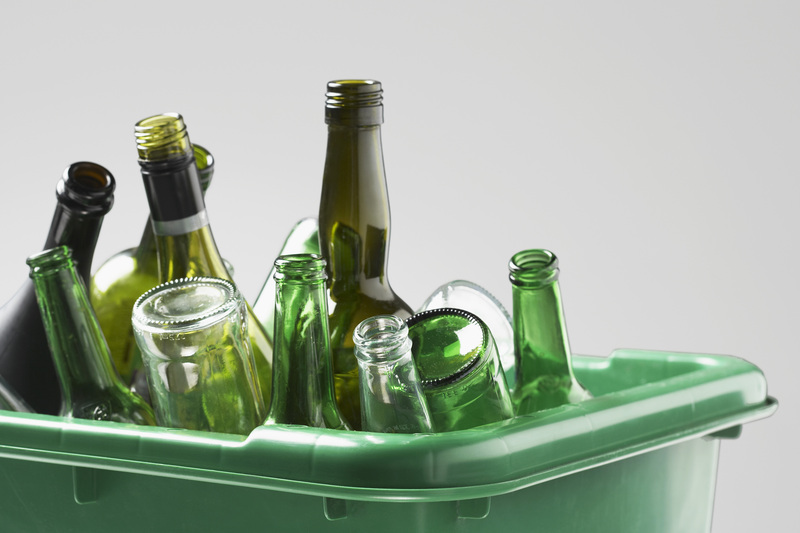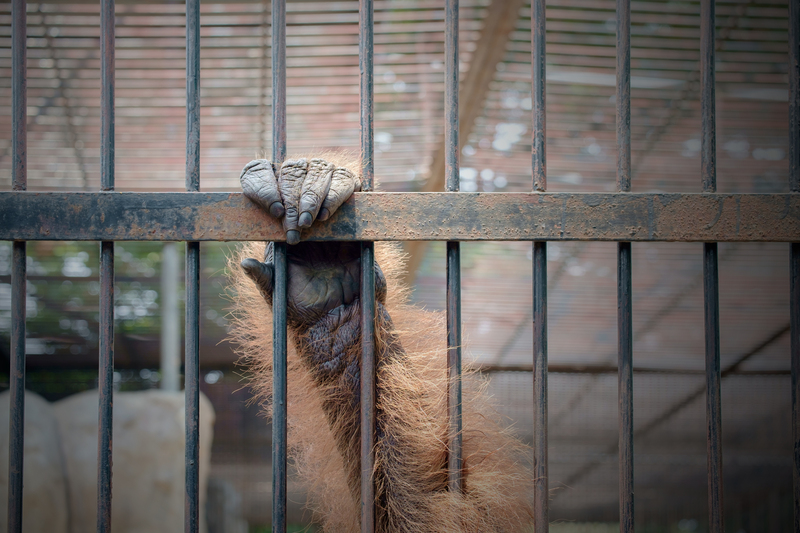Elevate Your Recycling Game with Expert Tips
Are you ready to transform your recycling habits and make a real impact on the environment? With growing global concerns over waste and pollution, effective recycling is more critical than ever. This comprehensive guide will help you elevate your recycling game with expert tips, ensuring your efforts count and the planet benefits.
Why Elevating Your Recycling Matters
Recycling is much more than a household chore - it's a crucial action in fighting climate change and decreasing waste. By upgrading your recycling knowledge and practices, you create less landfill, conserve natural resources, and cut down on greenhouse emissions. According to the EPA, recycling and composting prevented almost 94 million tons of waste from ending up in landfills in a recent year. Every small change in your recycling game matters!
- Reduce Landfill Waste: Recycling keeps valuable resources out of landfills, extending their lifespan.
- Conserve Resources: Recycling materials like aluminum and paper uses far less energy than producing new ones.
- Protect Ecosystems: Proper recycling helps reduce pollution from manufacturing and improper waste disposal.

Understanding Modern Recycling Systems
Today's recycling programs are complex. Streams are often divided into single-stream (all recyclables in one bin) or multi-stream (sorted by material). It's vital to understand how your local facility operates to maximize the value of your recycled items.
Common Materials Collected
- Paper and Cardboard
- Plastic Containers
- Glass Bottles and Jars
- Aluminum and Steel Cans
Familiarizing yourself with your community's accepted items will help you recycle smarter, reducing contamination and improving the quality of recyclables.
Expert Tips to Level Up Your Recycling Efforts
1. Know What Can and Can't Be Recycled
Elevate your recycling skills by double-checking which materials are accepted in your municipality.
- Check local guidelines: Every area has different rules. Look them up online or request a pamphlet.
- Avoid "wish-cycling": Putting non-recyclables in the bin contaminates the entire batch.
- Separate non-recyclables: Things like plastic bags, styrofoam, or greasy pizza boxes usually don't belong.
2. Rinse and Dry Before Recycling
Don't let food residue ruin your efforts! Clean containers prevent contamination, helping ensure your recyclable materials are truly recycled.
- Quick Rinse: Remove residue from jars, cans, and bottles.
- Let it Dry: Wet items can cause paper and cardboard to degrade, making them unrecyclable.
Tip: A simple rinse with leftover dishwater is usually enough.
3. Flatten Cardboard and Boxes
Maximize space in your recycling bin and aid in processing by breaking down boxes. Remove plastic windows or tape if possible.
- Cut or fold boxes flat before recycling.
- Stack similar materials together to streamline sorting.
4. Understand Plastic Codes
Not all plastics are created equal. Check for the plastic resin identification code--usually a number inside a triangle at the bottom of containers.
- 1 (PETE): Soft drink and water bottles (commonly recyclable)
- 2 (HDPE): Milk jugs, detergent bottles (commonly recyclable)
- Others (3-7): Vary by region--often not recyclable curbside
5. Compost Where Possible
Elevating your recycling game means reducing recycling contamination. Compost food scraps and soiled paper. Composting not only cuts landfill use, but also creates nutrient-rich soil for gardening.
- Fruit and vegetable scraps
- Coffee grounds and tea bags
- Uncoated paper towels and napkins
6. Recycle Beyond the Bin
Many items aren't accepted curbside but can be recycled elsewhere. Elevate your efforts by finding specialty recycling programs for:
- Electronics (e-waste): Laptops, phones, and TVs
- Batteries: Collection points at retailers or hazardous waste events
- Plastic bags and film: Drop-off bins at grocery stores
- Clothing and textiles: Donation centers or textile recyclers
Maximizing the Impact of Your Recycling Routine
Stay Organized: Use Separate Bins
Use designated bins for paper, plastics, metals, and glass. Label them clearly to avoid confusion and empower your family to recycle correctly.
Buy Recycled and Support the Loop
Closing the loop means purchasing recycled products. Look for packaging that notes it's made from post-consumer materials. Buying recycled drives demand, making recycling more profitable and effective.
Reduce and Reuse First
Recycling is crucial, but even better is to minimize waste in the first place. Use reusable containers, shop at bulk stores, and opt for products with minimal or recyclable packaging.
- Carry reusable shopping bags
- Choose glass or metal over single-use plastics
- Repair before replacing items
Advanced Recycling Tactics: Take Your Efforts to the Next Level
Host a Recycling Challenge
Get your community, coworkers, or school involved! Organize a friendly competition to see who can recycle the most or best eliminate single-use plastics. Share tips and track progress together.
Educate Others - Start Conversations
Lead by example and inspire those around you with your knowledge. Host workshops or share articles on social media to elevate awareness and boost the collective recycling game in your network.
Stay Informed: Industry Changes
The recycling world evolves fast. Keep up with local policy changes and updates about what's accepted. Subscribe to local waste management newsletters or follow environmental groups for the latest news.
Explore Terracycle and Hard-to-Recycle Solutions
Terracycle and similar programs accept items most curbside programs won't. Think toothbrushes, cosmetics packaging, snack wrappers, and more. Check their website for free recycling programs and drop-off locations.
Compostable Plastics: Handle with Care
Many new products are labeled "compostable" or "biodegradable." Before recycling or composting, research local acceptance. Compostable plastics may need industrial facilities--putting them in your recycling or backyard compost can cause contamination.
Understanding Recycling Symbols and Codes
Feel lost looking at packaging? Here's a quick guide:
- ? Mobius Loop: Can be recycled but doesn't guarantee acceptance everywhere.
- Numbers 1-7: Indicates plastic type--check local rules for what's accepted.
- Green Dot: Manufacturer has contributed financially to recycling--does not always mean item is recyclable locally.
Tip: When in doubt, check your municipality's official recycling resources for symbol decoding.
Global Recycling Initiatives: Get Inspired
Countries around the world are innovating waste management. Take inspiration and implement new strategies in your home or community:
- Sweden: Less than 1% of trash goes to landfill due to advanced recycling and waste-to-energy programs.
- Japan: Highly specific waste sorting and zero waste towns.
- Canada: Community bottle return programs and e-waste collection drives.
Find out what's working elsewhere and advocate for improvements in your area. Elevating the recycling game requires both individual action and systemic change.
Troubleshooting Common Recycling Mistakes
Top Mistakes and How to Avoid Them
- Bagging Recyclables: Items in plastic bags may be discarded as they jam processing machinery. Place items loose in your bin.
- Including Contaminated Items: Food-soiled containers or greasy pizza boxes end up in the landfill.
- Tossing Dangerous Items: Batteries, electronics, and chemicals require special handling--never put them in curbside bins.
- Ignoring Local Advice: Rules differ - always check before recycling an uncertain item.
How to Motivate Your Family or Office to Recycle Better
Teamwork makes a difference. Empower your household or colleagues with these ideas:
- Host educational sessions with quick recycling do's and don'ts.
- Provide easy-to-access, clearly labeled bins in high-traffic areas.
- Share monthly progress updates and rewards for top recyclers.
- Post reminders near bins, focusing on most commonly misplaced items.
Useful Resources for Elevated Recycling
- Earth911: Search recycling solutions by zip code.
- EPA Recycle Right: US official recycling directory.
- Recycling Partnership: Insights and guides for successful recycling programs.
- Terracycle: Specialized hard-to-recycle item solutions.
Bookmark your municipality's waste management website for the latest on accepted items and recycling guidelines.

Step by Step: Optimize Your Home Recycling Station
- Survey Your Space: Pick a central location, ideally near your kitchen or garage entry.
- Set Up Three (or More) Bins: For paper, containers, and glass. Add a bin for returnables (like deposit bottles) if applicable.
- Label Bins Clearly: Use color coding or images for fast reference.
- Add a Compost Bin: Keep a lidded container handy for food scraps.
- Educate Household Members: Share guidelines or post a visual checklist above the bins.
Conclusion: Make Every Item Count
Elevate your recycling game with expert tips and you'll see your garbage shrink, your sense of impact grow, and the planet thank you. Every can rinsed, each battery diverted, and every composted banana peel adds up. By learning local rules, educating others, and making smart product choices, you ensure your recycling effort truly counts. The journey toward zero waste begins with one well-sorted bin. Start today and inspire others to join your mission for a cleaner, greener Earth!